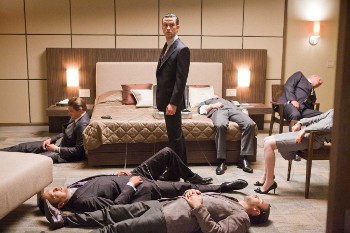Attaboy, Jim
 In my hastily keyboarded notes after seeing Inception last weekend, I spent much time faulting Jim Emerson for his dismissal of Christopher Nolan and of the movie. Emerson made sweeping, unsupported generalizations in the service of his obvious dislike of Nolan’s movies. His pieces (and his responses in the comments sections) represented an attack rather than an argument. It’s only fair, then, to praise Emerson for his essay yesterday, which restates his problems with the film but does so much more cogently and generously.
In my hastily keyboarded notes after seeing Inception last weekend, I spent much time faulting Jim Emerson for his dismissal of Christopher Nolan and of the movie. Emerson made sweeping, unsupported generalizations in the service of his obvious dislike of Nolan’s movies. His pieces (and his responses in the comments sections) represented an attack rather than an argument. It’s only fair, then, to praise Emerson for his essay yesterday, which restates his problems with the film but does so much more cogently and generously.

 In taking down Christopher Nolan’s Inception, Jim Emerson
In taking down Christopher Nolan’s Inception, Jim Emerson 